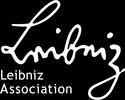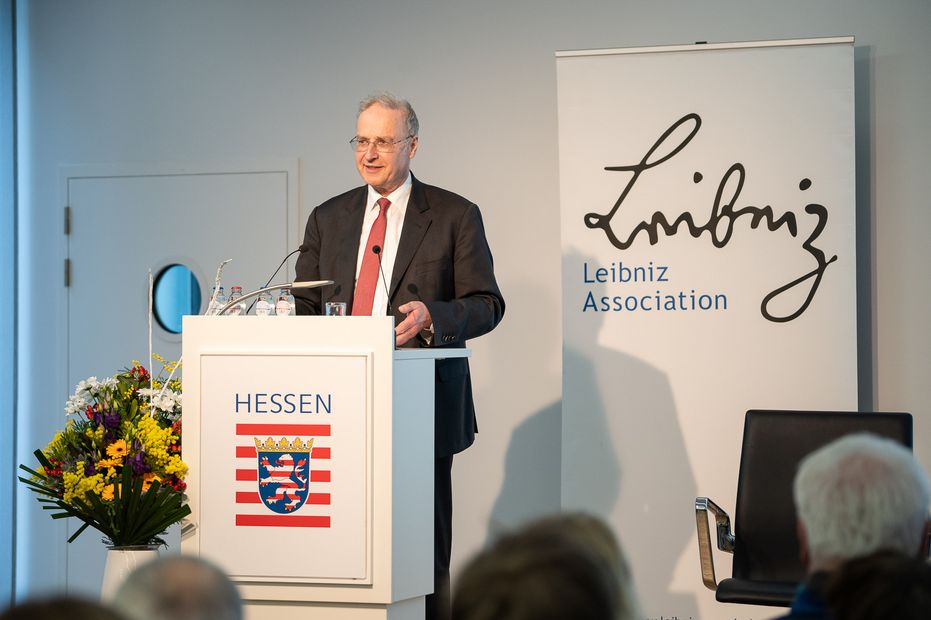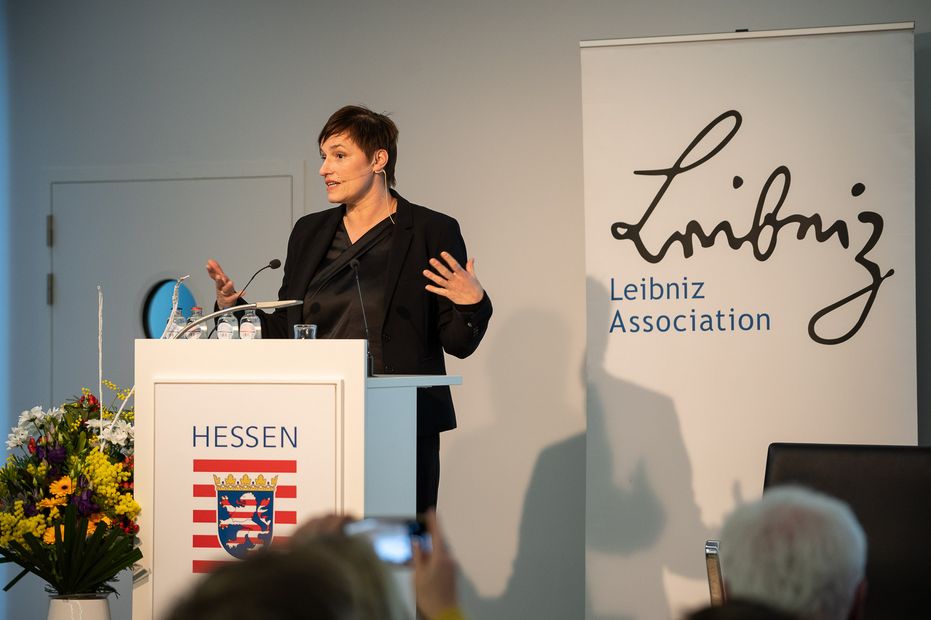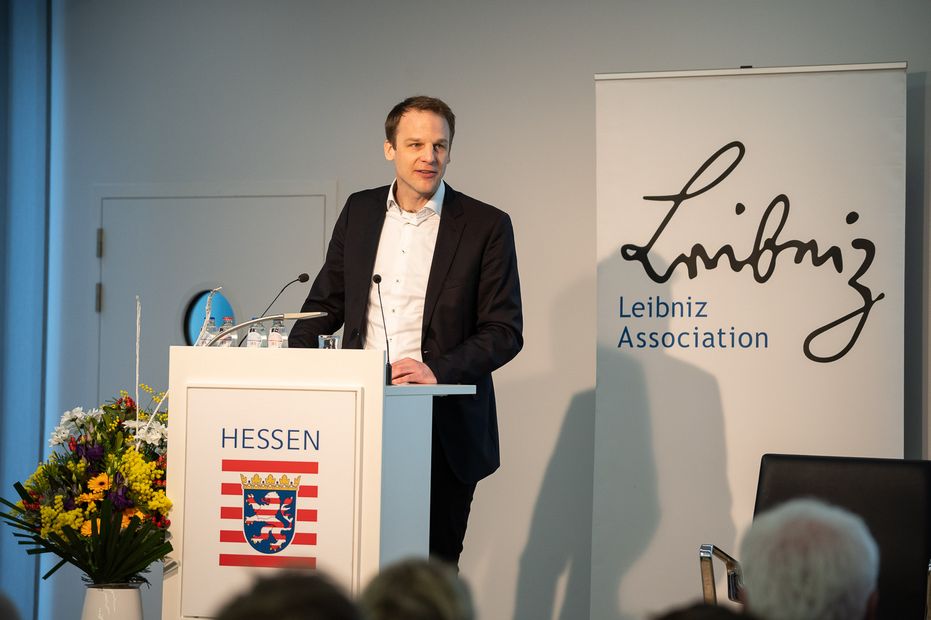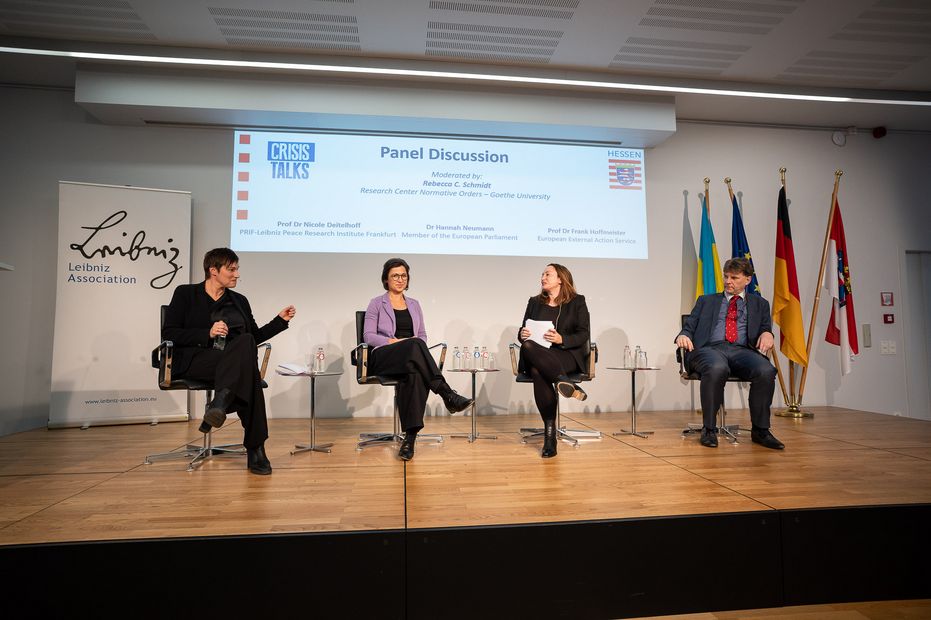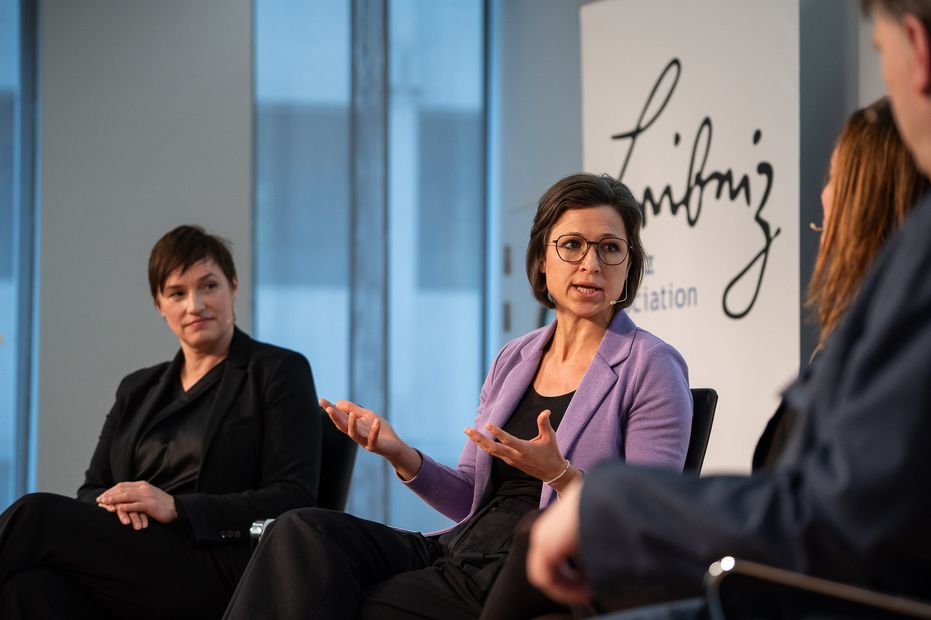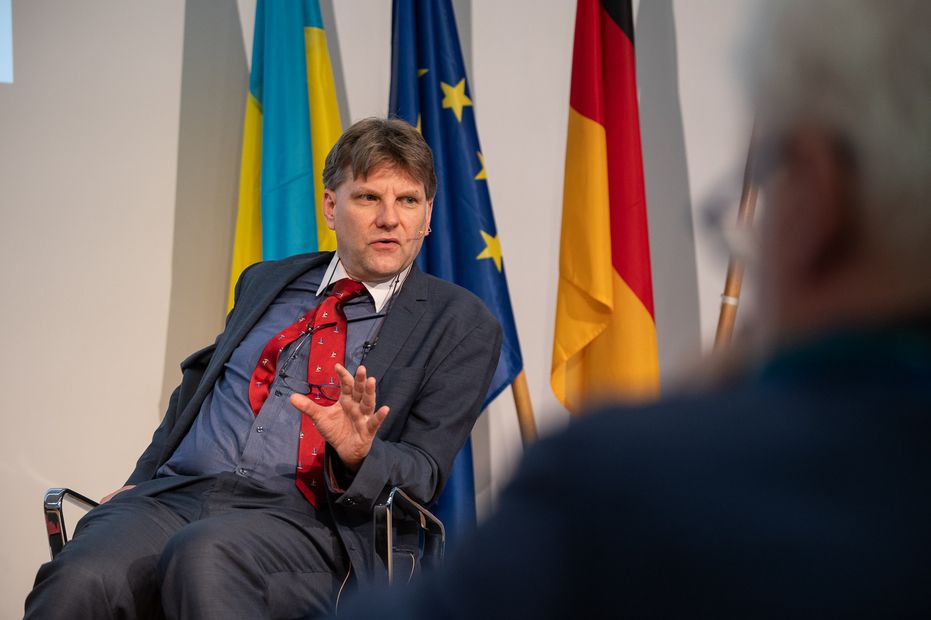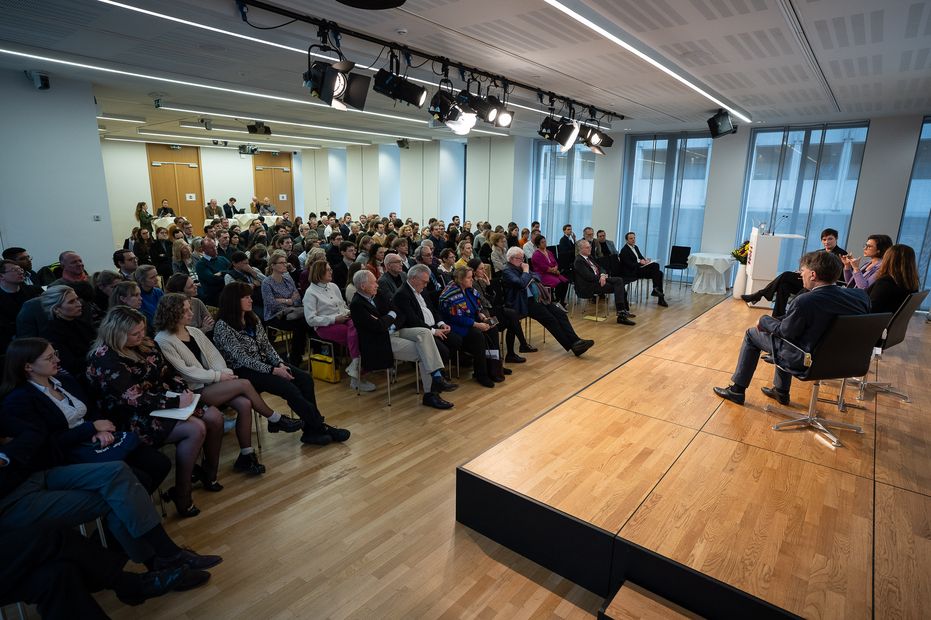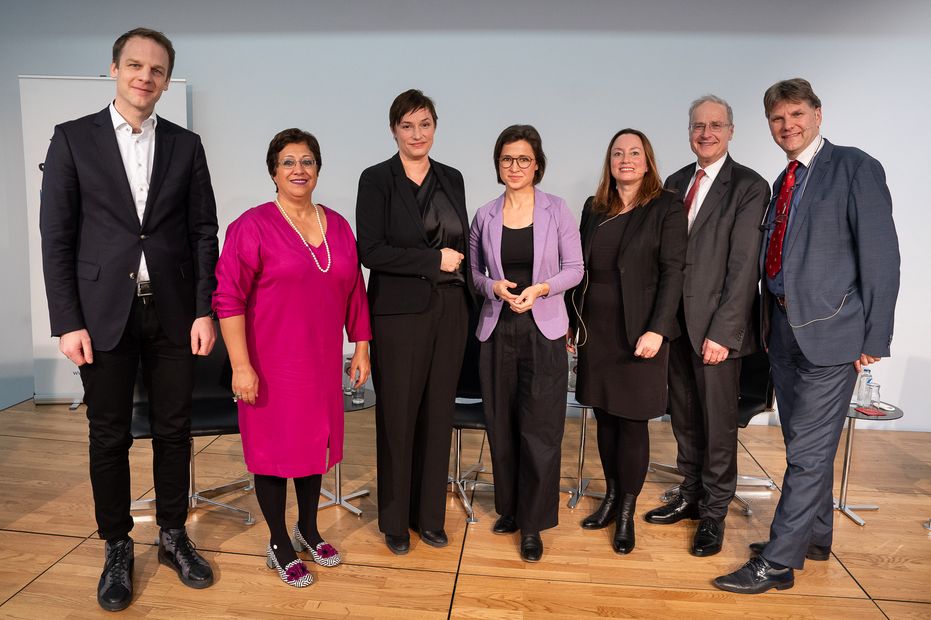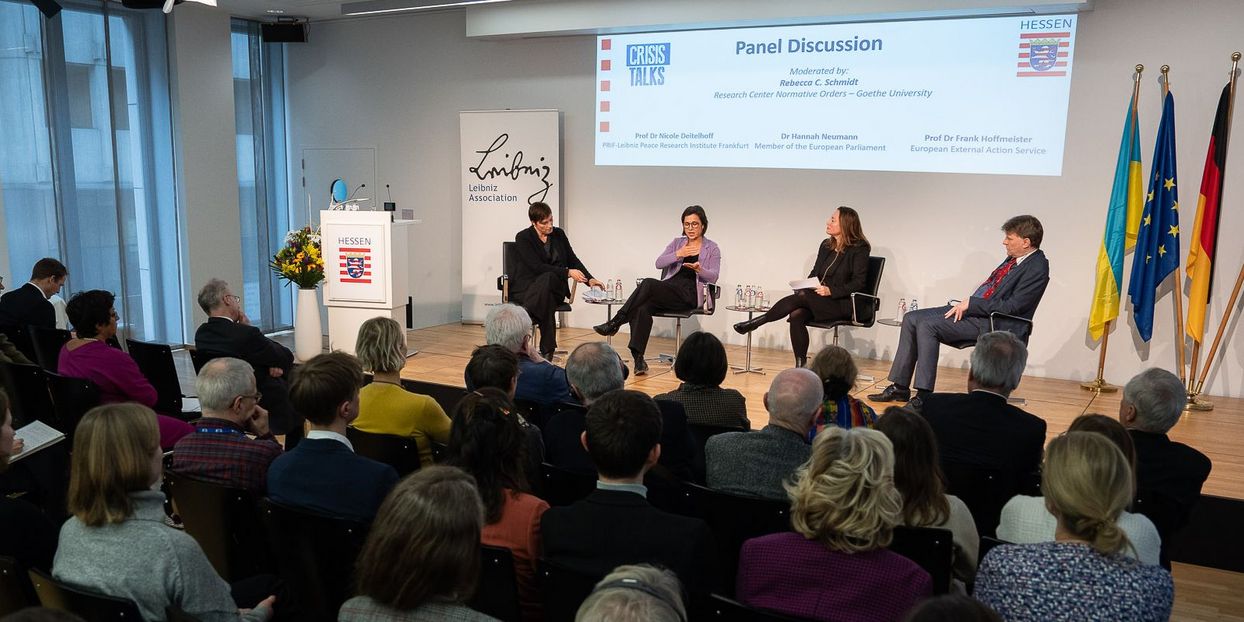
Europe's role in the world: A foreign policy guided by values in the light of global crisis management
Crisis Talk on 23 January 2024
The art of the achievable: Values-based foreign policy in times of crisis
Can the EU still afford a values-led foreign policy? Nicole Deitelhoff posed this question in the face of two decades of multiple crises and current conflicts that pose a major challenge to the normative project of the European Union.
In her keynote speech at the 27th Crisis Talk on the topic of "Europe's role in the world: A foreign policy guided by values in the light of global crisis management", Deitelhoff provided a differentiated answer. Values must be evaluated within the framework of what is achievable, while at the same time European values are in need to be promoted more proactively. In global crisis management, however, it is also important to be open to cooperation partners who do not share European values.
The Union appears to be facing a dilemma. It is true that values such as democracy, the rule of law and human rights should guide foreign policy. At the same time, Europe is confronted with a number of crises and wars, as Stefan Kroll emphasised in his welcoming address, which cannot be overcome by alliances of democracies alone. The latest arms exports to Saudi Arabia provide an illustrative example of this. According to Hannah Neumann, Member of the European Parliament, Saudi Arabia is certainly not a "flawless democracy", but it is an important partner for Israel's security.
Hannah Neumann described the distinction between values-based and interest-led foreign policy as rather academic, as politics is ultimately about the goals that the respective actors want to achieve. These can sometimes be described as more or less orientated towards values. This seems plausible from an academic perspective. However the term "value-led foreign policy" had been taken from political discourse, and hence it seems justified to take an academic look at it.
Frank Hoffmeister from the European External Action Service outlined specific dimensions of Europe's values-based foreign policy. For example, all EU trade agreements are bound to include a human rights clause. This would limit the scope for a stronger balancing of values and interests. So do human rights provide the point of reference for the "red lines" that several people on the podium called for to be defined more precisely?
It doesn't seem to be quite that simple. Nicole Deitelhoff put her finger on this weak spot too: The majority of states were currently governments that selectively, and in some cases systematically, violated human rights. Not all of them could be excluded as strategic cooperation partners. However, it is necessary to exclude those who act in a totalitarian manner internally and in a militarily expansive manner externally, i.e. who clearly oppose the international order as such.
With these words, the Crisis Talk delivered the "honest debate" that Friedrich von Heusinger, Director of the Representation of the State of Hesse, had called for in his welcoming words. The event, which was once again very well attended with well over 100 guests, was a very special one for him, as it was the last Crisis Talk in his time in office.
For this reason, Rebecca C. Schmidt and Stefan Kroll also had used their welcome adresses to thank Friedrich von Heusinger for his trust in this lunch debate series. Since 2015, the Representation of the State of Hesse, the Research Centre for Normative Orders at Goethe University, the Leibniz Association's European Office and the Leibniz Research Network "Environmental Crises - Crisis Environments" have jointly realized the Crisis Talks, which have become firmly established in Brussels over the years. Von Heusinger has made significant contributions to this.
Welcome
Friedrich von Heusinger
Director of the Representation of the State of Hessen to the EU
Dr Stefan Kroll
PRIF-Leibniz Peace Research Institute Frankfurt
Keynote
Prof Dr Nicole Deitelhoff
PRIF-Leibniz Peace Research Institute Frankfurt
Panel discussion
Prof Dr Nicole Deitelhoff
Hannah Neumann
Member of the European Parlament
Prof Dr Frank Hoffmeister
European External Action Service
Moderated by
Rebecca C. Schmidt
Research Center Normative Orders – Goethe University
